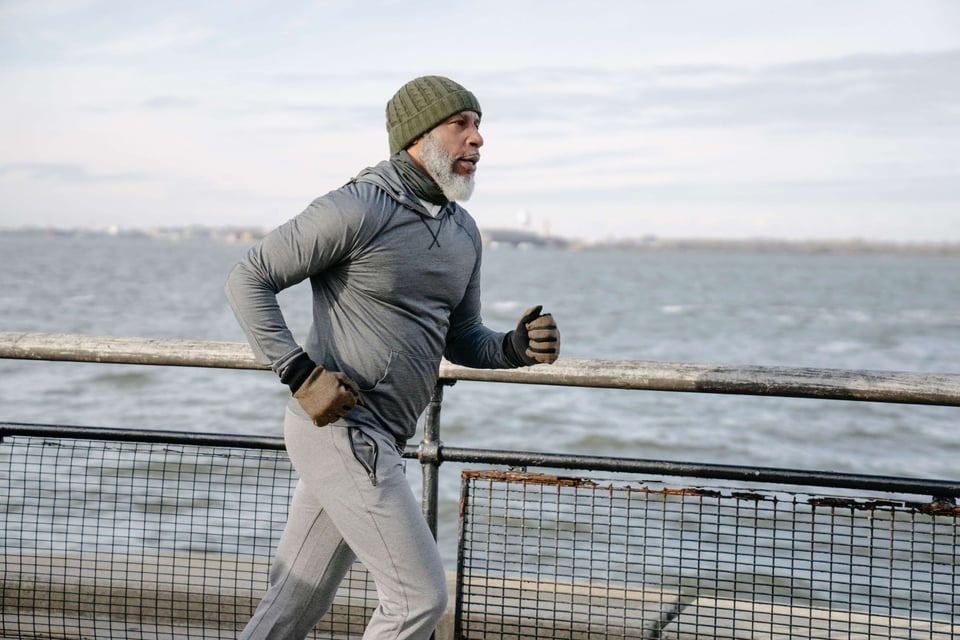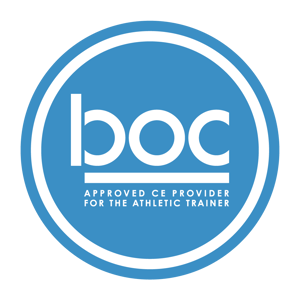Therapeutic Exercise for Older Adults

Description
This course is an evidence-based review of the parameters of prescribing exercise and physical activities for older adults. It first covers the changing demographics of our society, the benefits of exercise for older adults, the aging process, common geriatric disorders and how exercise affects them, contraindications/precautions to exercise, medication considerations, and patient compliance challenges. Next, the principles of aerobic, strengthening, and balance/posture activities are reviewed, with assessment and exercise prescription parameters discussed for each of these focus areas. Specific examples are given throughout the text, along with case studies from a variety of clinical settings. This course will be useful in clinical practice for all rehab clinicians who work with older adults.


Physicourses is an AOTA Approved Provider of professional development. Course approval ID# 6295. This distance learning-independent course is offered at 0.8 CEUs Intermediate Level, OT Service Delivery, Foundational Knowledge. AOTA does not endorse specific course content, products, or clinical procedures.
Available Course Credits
| Alaska State PT & OT Board | 8.00 | ||
 |
AOTA | 8.00 | |
| Arizona State Board of Physical Therapy | 8.00 | ||
| Arkansas State Board of Physcial Thearpy | 8.00 | ||
 |
BOC | 8.00 | |
| California Physical Therapy Board | 8.00 | ||
 |
Colorado Physical Therapy License Board | 8.00 | |
| Delaware Examining Board of Physical Therapists and Athletic Trainers | 8.00 | ||
| District Of Columbia Department of Health | 8.00 | ||
| FPTA | 8.00 | ||
| Georgia State Board of Physical Therapy | 16.00 | ||
| Hawaii Board of Physical Therapy | 8.00 | ||
| Idaho Physical Therapy Licensure Board | 8.00 | ||
| Indiana Physical Therapy Board | 8.00 | ||
| Iowa Board of Physical Therapy and Occupational Therapy | 8.00 | ||
| Kansas State Board of Healing Arts | 8.00 | ||
| Kentucky Board of Physical Therapy | 8.00 | ||
| Maine Board of Physical Therapy | 8.00 | ||
| Maryland Board of Physical Therapy Examiners | 8.00 | ||
| Massachusetts Board of Allied Health Professionals | 8.00 | ||
| Michigan Board of Physical Therapy | 8.00 | ||
| Mississippi State Board of Physical Therapy | 8.00 | ||
| Missouri Advisory Commission for Physical Therapists | 8.00 | ||
| Montana Board of Physical Therapy Examiners | 8.00 | ||
| Nebraska Department of Health and Human Services | 8.00 | ||
| New Mexico Physical Therapy Board | 8.00 | ||
| North Carolina Board of Physical Therapy Examiners | 8.00 | ||
| North Dakota Board of Physical Therapy | 8.00 | ||
| Office of Professional Regulation, Vermont Secretary of State | 8.00 | ||
| Oklahoma Board of Medical Licensure and Supervision - Physical Therapy | 8.00 | ||
| Oregon Board of Physical Therapy | 8.00 | ||
| Pennsylvania Bureau of Professional and Occupational Affairs - Physical Therapy | 8.00 | ||
| Physical Therapy Governing Board New Hampshire | 8.00 | ||
| South Carolina Board of Physical Therapy | 8.00 | ||
| South Dakota Physical Therapy License Board | 8.00 | ||
| State of Alabama Board of Physical Therapy | 8.00 | ||
| State of Rhode Island Department of Health | 8.00 | ||
| Tennessee Board of Physical Therapy | 8.00 | ||
| Utah Physical Therapy Licensing Board | 8.00 | ||
| Virginia Board of Physical Therapy | 8.00 | ||
| Washington State Board of Physical Therapy | 8.00 | ||
| Wisconsin Physical Therapy License Board | 8.00 | ||
| Wyoming Board of Physical Therapy | 8.00 |
Course Content
| 221a Therapeutic Exercise for Older Adults PDF | Module | ||
| Course Evaluation | Module |
Sarah R.Stillings, MA, PT, MPT, CHT
Sarah R. (Sally) Stillings is a PT and Certified Hand Therapist in Texas. She received her physical therapy degree from the University of North Carolina at Chapel Hill. Prior to becoming a therapist, Sally taught university-level writing courses and was assistant editor of The Journal of Craniomandibular Practice. In her extensive career as a PT, she has held a variety of clinical, teaching, administrative, and business roles, including general PT practitioner, upper extremity specialist, clinic manager, hand therapy clinic coordinator, continuing education (CE) instructor, and CE course administrator. She has also served as Executive Director of the Kellermann Foundation, a U.S. nonprofit organization supporting healthcare and community development in Uganda, East Africa. Her work now focuses on creating evidence-based CE materials for rehab professionals. Sally is a lifelong runner who celebrates all those who cover the ground.

221a Therapeutic Exercise for Older Adults—Course Objectives
At the completion of this course, the rehab clinician will be able to:
- Recognize the changing demographics of the U.S. and other countries and how they may affect clinical practice.
- Recall normal physiological changes that occur with aging.
- Identify common geriatric disorders, how they affect health and function, and how exercise may help.
- List contraindications and precautions to exercise with older patients and be apply to apply information in a case study.
- Identify issues of patient compliance with exercise programs.
- Recall how endurance, flexibility, balance, strength, and other components of geriatric fitness will affect patients’ function.
- Identify key concepts of therapeutic exercise for the older adult.
- Choose and apply a variety of strategies for building a patient-specific geriatric exercise program.
- Select appropriate therapeutic approaches for geriatric fitness for a wide variety of cases.
221a Therapeutic Exercise for Older Adults—Table of Contents
HOUR 1
Course Instructions 2
About the Author/ Course Description 3
Course Objectives 4
Table of Contents 5
Introduction 8
Chapter 1: Exercise and Older Adults 9
Demographics of Aging
Case Study 1 12
Definitions 13
Elderly/Old
Generational Cohorts 14
Gerontology/Geriatrics 16
Lifespan/Life Expectancy
Physical Activity/Exercise 17
The Aging Process 18
Influence of Exercise on the Aging Process 21
Benefits of Exercise for Older Adults 23
HOUR 2
Chapter 2: Common Geriatric Disorders 25
Cardiovascular Disease 26
Cancer 28
COVID-19 30
Cerebrovascular Disease 32
Chronic Lower Respiratory Disease 34
Case Study 2 36
Alzheimer’s Disease/Dementia 37
Diabetes Mellitus 40
Obesity 43
HOUR 3
Osteoporosis and Low Bone Mass 45
Case Study 3 48
Osteoarthritis and Other Arthritic Conditions 49
Chapter 3: Factors in Prescribing Exercise 53
Contraindications and Precautions
Absolute Contraindications to Exercise Participation 54
Relative Contraindications or Precautions to Exercise Participation
Medication Considerations 55
Nonsteroidal Anti-inflammatory Drugs (NSAIDs) 57
Acetaminophen 58
Opioids 59
Statins
Sympathomimetics 61
Antihypertensives 62
Diuretics
Other medications 63
HOUR 4
Case Study 4 64
Functional Assessment of the Older Adult 65
Creating and Implementing the Plan of Care 66
Overload 67
Specificity
Functional Training 69
Red Flags during Exercise
Issues in Patient Compliance 72
Physical and Cognitive Barriers to Learning 73
Learning Principles and Learning Styles 74
Visual Learning
Auditory Learning
Kinesthetic Learning
Stress Factors among Older Adults 77
HOUR 5
Chapter 4: Aerobic Fitness for Older Adults 82
Recommendations for Physical Activity 85
Assessing Cardiovascular Fitness 87
Maximal Exercise Testing
Submaximal Exercise Testing 89
Estimates of Maximum Heart Rate 92
Types of Aerobic Exercise 94
Walking 95
Running 97
Case Study 5 99
Cycling 100
Water-Based Aerobic Exercise 102
Aquatic Exercise
Swimming 104
High Intensity Interval Training 105
Other Aerobic Activities 106
HOUR 6
Perception of Intensity 108
The Talk Test 109
Fitness Tracking Devices 110
Perceived Exertion Scales 112
Chapter 5: Strength Training 115
Definitions
Review of Resistance Training Principles 116
Decision to Prescribe Resistance Training 119
Absolute Contraindications to Resistance Training 120
Relative Contraindications or Precautions to Resistance Training
Reluctance to Participate 121
Case Study 6
Assessment of Muscular Strength 122
Manual Muscle Testing 123
Advantages 125
Disadvantages
Hand-Held Dynamometry Testing 127
Advantages 128
Disadvantages
HOUR 7
One-Repetition Maximum Testing 129
The Importance of Power 131
Assessment of Muscular Endurance 132
Prescribing Strength Training 133
Factors in Planning Resistance Exercise Programs
Progressing the Resistance Training Program 136
Choosing Appropriate Exercises 137
Chapter 6: Posture, Flexibility, and Balance 141
Postural Issues with Older Adults
Assessment and Intervention for Postural Impairments 144
Battling Stiffness: Flexibility and Stretching 147
HOUR 8
Balance: Fall Prevention and Improved Quality of Life 149
Falls among Older Adults
Balance in Older Adults 152
Assessment of Balance 154
Intervention for Balance Impairments 156
Conclusion 160
References 162
Examination 171
Evaluation 180
Customer Cancellation:
Customers may request cancellations of their enrollment or subscription in our digital or live educational services, subject to the terms outlined below. Cancellation requests must be made in writing, either through email or through our designated cancellation process.
Refund Policy:
Refunds will be provided according to the following guidelines: i) For cancellation requests made within 5 days of the initial enrollment or subscription, a full refund will be issued. Refunds will be issued using the same method of payment used for the original transaction, unless otherwise agreed upon in writing.
Provider Cancellation:
In the event Physicourses cancels your course, you will be issued a full refund or transfered to a course of equal or greater value.
Physicourses Conflict of Interest Disclosure Policy for Authors and Staff:
All persons in a position to control the content of any educational activity (authors or staff from Physicourses) are required to disclose to Physicourses any potentially biasing or potential conflict of interests in relationships of a financial, professional, or personal nature.
The intent of this disclosure is not to prevent authors or staff with commercial affiliations from planning an educational activity, or to prevent a Presenter with commercial affiliations from presenting, but rather to inform Physicourses of any potentially biasing relationships so that conflicts are resolved prior to the activity.
It is the policy of Physicourses to ensure balance, independence, objectivity and scientific rigor in all of its continuing education activities. All relevant conflicts of interest identified by the planner, presenter, or as determined by Physicourses will be disclosed to the audience verbally and in writing prior to the start of the presentation.
Definitions for Authors/Staff:
Relevant financial relationships are those relationships in which you benefit by receiving a salary, royalty, intellectual property rights, gift, speaking fee, consulting fee, honoraria, ownership interest (e.g., stocks, stock options, or other ownership interest, excluding diversified mutual funds), or other financial benefit. Financial relationships can also include “contracted research” where the institution gets the grant and manages the funds and you are the principal or named investigator on the grant.
Educational Level: Intermediate
Target Audience: PT, PTA, OT, OTA
Course Completion Requirements: Passing an online exam with 70% or greater will be required to earn continuing education credit
This course is approved for 0.8 CEUS. 8 contact hours
Physicourses is committed to ensuring accessibility to the most extensive audience possible. If you have any questions or special needs requests, please contact us at info@physicourses.com.